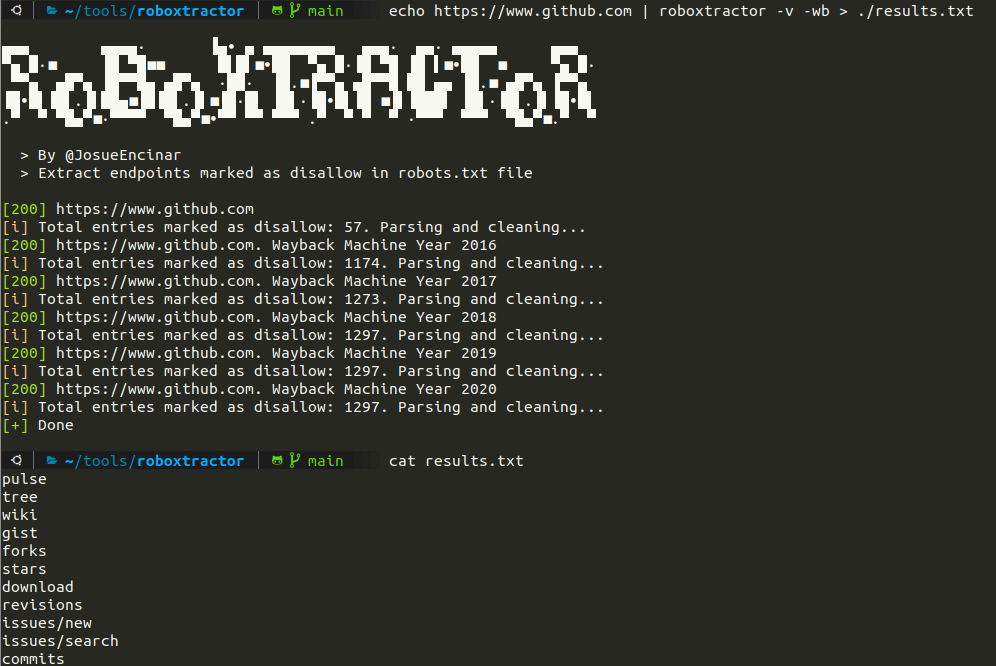roboxtractor
 roboxtractor copied to clipboard
roboxtractor copied to clipboard
Extract endpoints marked as disallow in robots files to generate wordlists.
roboXtractor
This tool has been developed to extract endpoints marked as disallow in robots.txt file. It crawls the file directly on the web and has a wayback machine query mode (1 query for each of the previous 5 years).
Possible uses of roboXtractor:
- Generate a customized wordlist of endpoints for later use in a fuzzing tool (-m 1).
- Generate a list of URLs to visit (-m 0).
🛠️ Installation
If you want to make modifications locally and compile it, follow the instructions below:
> git clone https://github.com/Josue87/roboxtractor.git
> cd roboxtractor
> go build
If you are only interested in using the program:
> go get -u github.com/Josue87/roboxtractor
Note If you are using version 1.16 or higher and you have any errors, run the following command:
> go env -w GO111MODULE="auto"
🗒 Options
The flags that can be used to launch the tool:
| Flag | Type | Description | Example |
|---|---|---|---|
| u | string | URL to extract endpoints marked as disallow in robots.txt file. | -u https://example.com |
| m | uint | Extract URLs (0) // Extract endpoints to generate a wordlist (>1 default) | -m 1 |
| wb | bool | Check Wayback Machine. Check 5 years (Slow mode) | -wb |
| v | bool | Verbose mode. Displays additional information at each step | -v |
| s | bool | Silen mode doesn't show banner | -s |
You can ignore the -u flag and pass a file directly as follows:
cat urls.txt | roboxtractor -m 1 -v
Only the results are written to the standard output. The banner and information messages with the -v flag are redirected to the error output,
👾 Usage
The following are some examples of use:
roboxtractor --help
cat urls.txt | roboxtractor -m 0 -v
roboxtractor -u https://www.example.com -m 1 -wb
cat urls.txt | roboxtractor -m 1 -s > ./customwordlist.txt
cat urls.txt | roboxtractor -s -v | uniq > ./uniquewordlist.txt
echo http://example.com | roboxtractor -v
echo http://example.com | roboxtractor -v -wb
🚀 Examples
Let's take a look at some examples. We have the following file:

Extracting endpoints:

Extracting URLs:

Checking Wayback Machine:

Github had many entries in the file, which were not useful, a cleaning process is done to avoid duplicates or entries with *. Check the following image:

For example:
-
/gist/*/*/*is transformed asgist. -
/*/tarballis trasformed astarball. -
/,/*or similar entries are removed.
🤗 Thanks to
The idea comes from a tweet written by @remonsec that did something similar in a bash script. Check the tweet.



